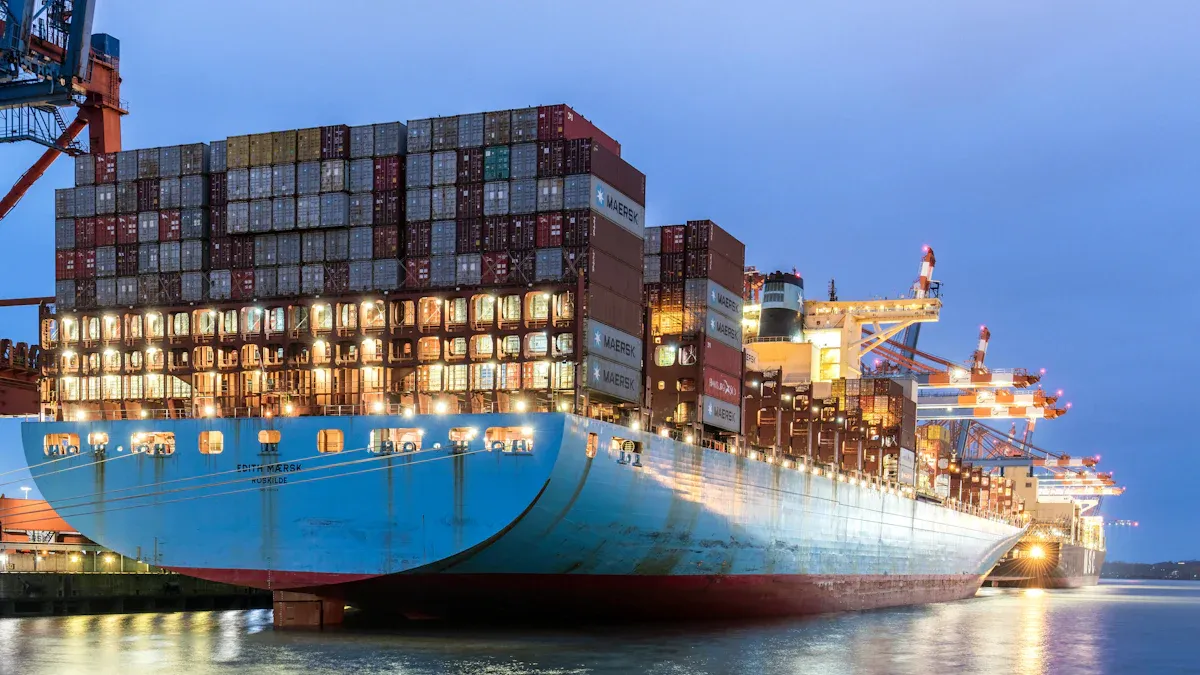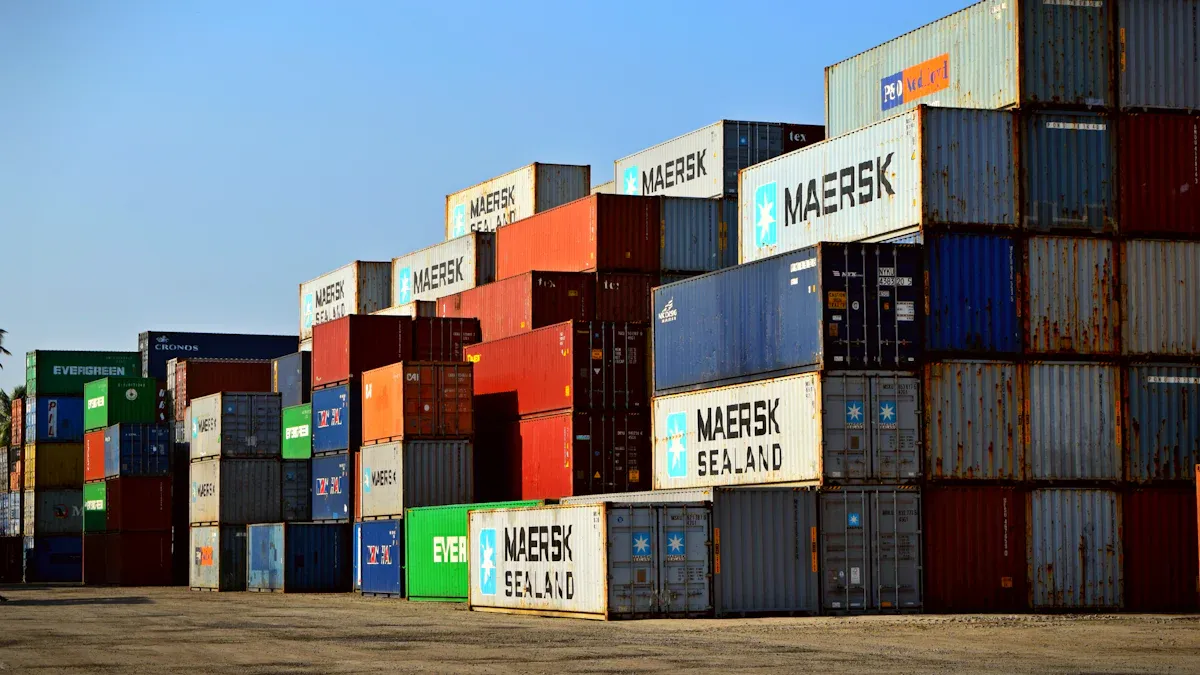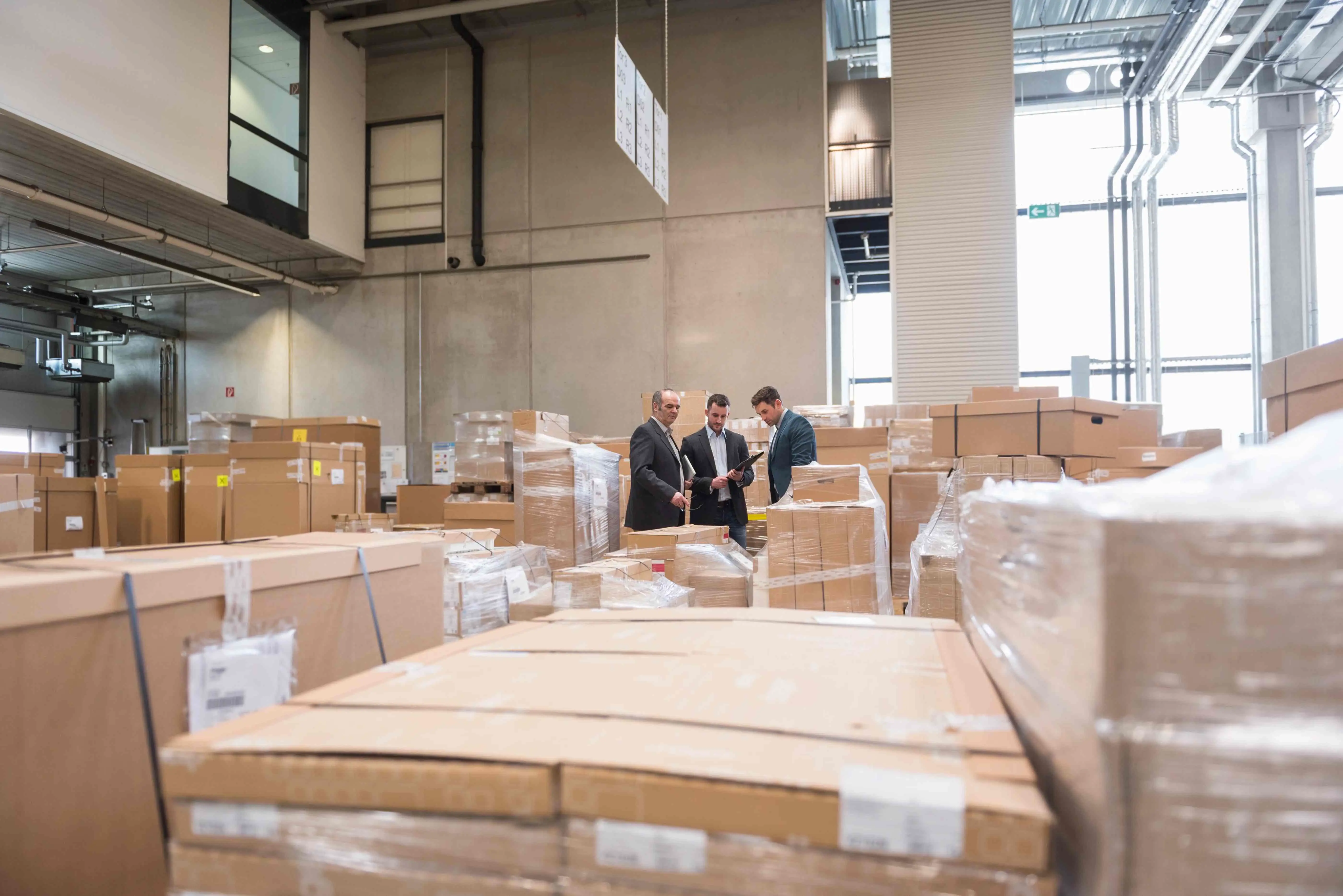Top Tips for Optimizing Logistics with Overseas Warehouse Services

Global trade needs good logistics to work well. About 80% of world trade, worth over $20 trillion each year, moves through supply chains. Improving these systems cuts inventory costs by up to 30%. It also makes order delivery 50% faster. Overseas warehouse services, like JUSDA’s, help with quicker shipping, saving money, and happy customers.
Key Takeaways
Overseas warehouses lower shipping costs and deliver faster, pleasing customers.
Technology like live tracking and warehouse systems helps manage stock and avoids mistakes.
Picking warehouses close to big ports or airports speeds shipping and saves money.
Understanding Overseas Warehouse Services
What Are Overseas Warehouse Services
Overseas warehouse services are important for global businesses. They offer storage and delivery solutions in other countries. This helps you keep products closer to your customers. Key tasks include handling goods, storing items, and managing warehouses. Extra services like freight help and shipping paperwork also ensure smooth operations.
Using overseas warehouses makes moving goods internationally easier. These warehouses are central points for global supply chains. They speed up deliveries and lower shipping costs. For example, eCommerce businesses can store items in these warehouses. This lets them ship orders faster and keep customers happy.
Tip: Pick a warehouse near big ports or airports. This can save time and improve efficiency.
The Role of Overseas Warehouses in Logistics Optimization
Overseas warehouses are vital for better logistics. They solve problems like slow shipping and high costs. Placing inventory in these warehouses cuts delivery times and improves accuracy.
Here are examples of how overseas warehouses improve logistics:
Case Study | Problem | Fix | Results |
|---|---|---|---|
Retail Distribution Center | Long picker travel times | Used wave optimization, improved pick paths | |
eCommerce with Automated Picking | Crowding during busy times | Spread fast-moving items, added wave templates | 50% less crowding, 30% faster picking |
Multi-channel Retail Distribution | Too much slow inventory | Moved slow items, optimized waves | 26.6% fewer batches, 81.8% fewer aisle trips |
These examples show how overseas warehouses fix problems and improve supply chains. Using them leads to faster shipping, better inventory control, and lower costs.
Benefits of Overseas Warehouse Services for Logistics
Cost Savings and Efficient Inventory Management
Overseas warehouses help cut costs and manage inventory better. Storing products closer to customers avoids high shipping fees for single orders. Sending bulk shipments to these warehouses lowers transport costs and simplifies processes.
Managing inventory is easier with these services. You can track stock levels live and adjust based on demand. This prevents having too much or too little stock. For example, JUSDA’s cloud warehousing tracks inventory dynamically, ensuring the right stock levels.
Tip: Choose warehouses with smart inventory systems to reduce mistakes and work efficiently.
Faster Delivery and Enhanced Customer Satisfaction
Speed matters in logistics. Overseas warehouses help deliver products faster by cutting travel time. When products are stored near customers, orders arrive quickly, making customers happy.
Here are key delivery metrics:
Order Lead Time: Shorter times make customers more satisfied.
On-Time Shipment Rate: High rates bring repeat buyers.
Metric | Description |
|---|---|
Delivery Time Variance | Tracks how actual delivery differs from promised time. Lower variance means better performance. |
Order Lead Time | Time from order placement to delivery. Shorter times boost satisfaction. |
On-Time Shipment Rate | Percentage of orders shipped on time. Higher rates mean happier customers. |
Faster delivery also improves accuracy. Customers get their orders on time, building trust. JUSDASR’s warehouses near ports and airports ensure quick shipping, meeting customer needs reliably.
Simplified Returns Management for Global Businesses
Handling returns is tough, especially across borders. Overseas warehouses make it easier with local return centers. These centers let customers return items quickly, saving time and money.
Warehouses can also check returned items and restock them fast. This improves operations and reduces losses. For instance, JUSDASR’s dropshipping adjusts inventory smoothly, making returned items ready for resale quickly.
Note: A good returns process keeps customers happy and boosts your brand image.
Actionable Tips for Improving Warehouse Operations

Use Technology for Better Tracking and Management
Technology is key to managing logistics well. Real-time tracking helps you watch inventory and shipments closely. Tools like RFID, GPS, and IoT devices give constant updates. This reduces problems like lost items or theft. By 2025, more businesses will use these tools to cut losses and improve supply chains.
Automation also makes warehouses work better. Sensors and devices collect data about inventory conditions. This helps you make smart decisions quickly. For example, IoT tools help handle sudden changes in demand. This makes logistics stronger and more dependable.
Tip: Get a warehouse management system (WMS) to track inventory easily and work faster.
Plan Transportation Routes to Save Time and Money
Planning routes well saves money and speeds up deliveries. Route software groups shipments, lowers fuel use, and cuts repair costs. This saves money and delivers goods faster. Companies using this software have cut delivery times by 30%.
Good transportation also makes customers happier. Studying traffic, vehicle space, and past data helps you plan better. This improves delivery and strengthens your logistics system.
Callout: Smart route planning saves money and avoids delivery delays.
Work Closely with Logistics Partners
Good teamwork with logistics partners is important. Reliable partners improve communication, trust, and flexibility. For example, Veritas AG worked with Europartners during a shipping crisis. This teamwork added air services, better supplier control, and smarter decisions.
Trusting your partners helps you handle problems quickly. It also ensures your logistics match your business goals. Strong partnerships bring new ideas and keep you competitive.
Note: Check your partnerships often to ensure they meet your needs.
Use Data to Make Smarter Decisions
Data is a great tool for better logistics. It helps predict demand, manage stock, and organize orders. For example, a Saudi freight company uses data to plan for seasonal demand. This helps them adjust inventory levels well.
Big data also shows customer habits, improving warehouse strategies. Companies like Expleo show how data lowers risks and boosts profits. Using data helps you follow market trends and improve supply chains.
Tip: Use KPIs to track progress and find ways to improve logistics.
How JUSDA and JUSDASR Improve Logistics Efficiency
JUSDA’s Wide Network and Smart Supply Chain Tools
JUSDA has over 155 service points and huge warehouse space. This large network helps provide smooth logistics in many areas. JUSDA uses advanced tools like IoT and big data to improve supply chains. These tools help track shipments and stock in real time. This reduces mistakes and speeds up deliveries.
JUSDA also creates solutions that fit different industries. Whether it’s electronics, cars, or fast-moving goods, JUSDA adjusts to your needs. By using their smart supply chain tools, you can save money and work more efficiently.
JUSDASR’s Key Warehouse Locations and Special Services
JUSDASR places its warehouses near big U.S. ports and airports. This helps deliver products faster and cuts transport costs. They also offer special services like dropshipping and handling energy storage products. These services make managing inventory easier and more effective.
JUSDASR works with carriers like FedEx and UPS for quick deliveries. This ensures your products arrive on time and correctly. Using JUSDASR’s services helps meet customer needs and strengthens your supply chain.
Using JUSDASR for Easy Cross-Border Shipping
Shipping across borders can be tricky with customs and delays. JUSDASR makes it easier with direct express lines and first-mile services. These options cut delivery times and improve reliability.
Their warehouse network helps store items closer to customers. This allows quick responses to market changes and growing demands. It also helps businesses stay competitive in global markets.
Tip: Choose JUSDASR to simplify cross-border shipping and keep customers happy.
Overcoming Challenges in Overseas Warehouse Operations
Managing Cross-Border Regulations and Compliance
Understanding international rules is important for smooth operations. Customs checks, certifications, and correct paperwork help avoid delays. Keeping proper records and using trade agreements make compliance easier.
Tip: Work with authorities to stay informed about rule changes and meet standards.
Here’s how businesses solve common compliance problems:
Challenge | Example | Solution |
|---|---|---|
Supplier Data Verification | Clothing store sourcing leather faces issues due to missing GPS data. | Use AI tools to verify land-use changes with satellite data. |
High Costs of Due Diligence Statements | Food company importing cocoa struggles with many DDS reports monthly. | Use blockchain to securely track and store records. |
Risk of Shipment Holds | Rubber importer faces delays from missing DDS report details. | Set up alerts to catch compliance problems early. |
Addressing Communication and Coordination Barriers
Good communication keeps warehouse operations running smoothly. Misunderstandings can cause delays and mistakes. Team coordination is also key for better decisions. Technology helps by improving teamwork and giving real-time updates.
Aspect | Description |
|---|---|
Coordination | Helps teams make better decisions in supply chains. |
Communication | Reduces mistakes and improves efficiency. |
Technology | Makes teamwork easier across all levels of operations. |
Callout: Use tools like ERP systems to share data and improve team communication.
Ensuring Accurate Inventory Forecasting and Demand Planning
Good forecasting avoids running out of stock or having too much. Time series analysis finds seasonal trends, while machine learning spots hidden demand patterns. These tools help plan inventory better.
Method | Description |
|---|---|
Time Series Forecasting | Uses past data to predict future needs. |
Machine Learning | Adjusts to market changes for better predictions. |
Improves communication in the supply chain for accurate forecasting. |
Tip: Use forecasting tools with live data to adjust inventory quickly.
Mitigating Risks in Transportation and Warehousing
Problems in transport and storage can disrupt work. Real-time tracking tools help spot issues early. Emergency plans reduce problems during unexpected events. Regular maintenance prevents equipment breakdowns and keeps things running.
Note: Train workers to handle risks and build strong partnerships with trusted suppliers.
By aligning transport and warehouse goals, you can create a strong risk management plan to keep your supply chain steady.

JUSDA Solutions
To provide you with professional solutions and quotations.
Overseas warehouse services make logistics better by saving money, delivering faster, and handling returns easily. Choosing options like JUSDA and JUSDASR boosts performance and keeps customers happy.
Tip: Try overseas warehouses now. They help you compete and succeed in global markets.
See Also
Harnessing Robotics in Logistics to Boost Warehouse Efficiency
Unlocking Cost Savings: Expert Tips for Supply Chain Success
Understanding Robotic Automation for Enhanced Warehouse Efficiency
Proven Strategies for Optimizing Your Supply Chain Effectively
